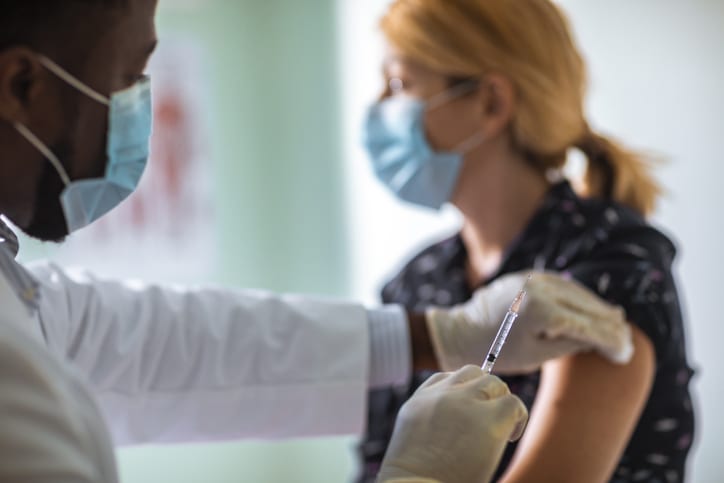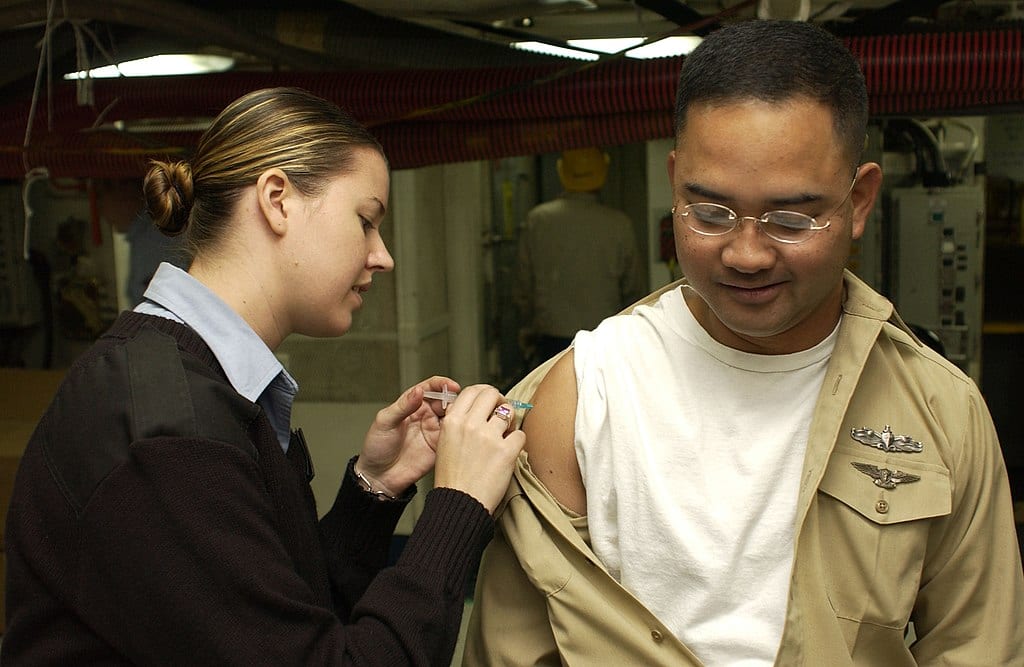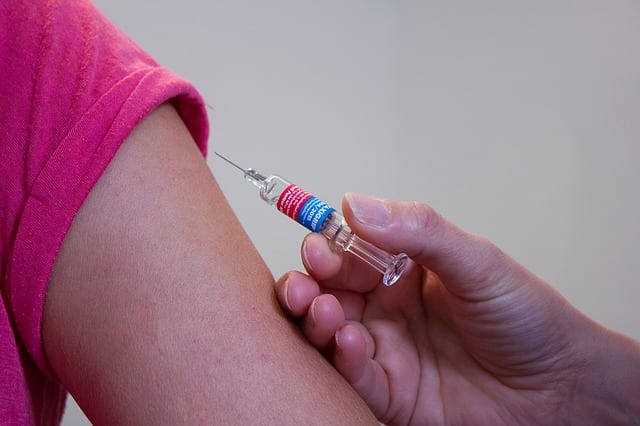It’s almost time to get your flu shot!
Shots aren’t a fun thing for anyone, and convincing your kids to go with you and sit willingly to be stabbed is even less fun than undergoing the stick yourself.
To add insult to injury, it’s not over and done with in a few seconds, as promised, either – for many of us, the injection site can be tender and achy for a few days afterward.
Image Credit: iStock
According to experts, though, the pain is a good thing – a sign that the vaccination is working – but what makes it hurt?
The vaccine works by injecting an antigen – in this case a dead, deactivated virus that’s similar to the flu – into your body. It “primes” your immune system cells so that they will activate if and when they encounter that foreign substance again.
You can’t get sick from the dead virus; it’s only goal is to sensitize your immune system to potential threats in the future.
Image Credit: iStock
Whenever a foreign “threat” shows up, your immune system also releases mediators like histamine, which can cause inflammation around an area of concern. The inflammation helps your body fight invaders and repairs damaged tissue, but as anyone who has ever gotten a bad bug bite or had an allergic reaction like hives knows, histamine responses can also cause soreness.
If your body responds to the shot with histamine, the site of the shot – usually your upper arm – could be sore for a couple of days.
Immunologist Richard Zimmerman told Popular Science that about 1 in 5 people have a painful reaction, and if it happens to you, some ibuprofen before the shot, and an ice pack afterward, should alleviate the discomfort.
It could also help to move your arm around after you get the shot, to diffuse the vaccine, and also to ask for the shot to be given in your non-dominant arm.
Image Credit: iStock
Definitely don’t let the pain stop you, though, because if you’ve ever gotten the flu, you know for sure you don’t want to do that again.
You’ll help contribute to herd immunity, too, which helps protect higher-risk population, so that makes you a low-key superhero, really.
Worth a few days of soreness, if you ask me!
The post This is Why the Flu Shot Makes Your Arm Hurt appeared first on UberFacts.










